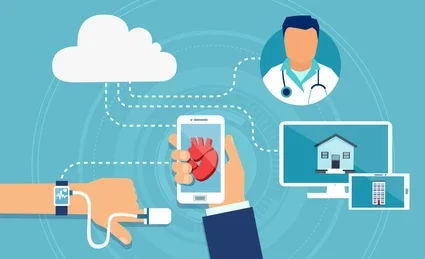
The Role of Digital Biomarkers in Modern Clinical Research
In today’s era of technological advancement, clinical research is undergoing a revolutionary transformation. One of the key drivers of this change is the emergence of digital biomarkers—a field blending health, data science, and technology to enable more precise, continuous, and patient-centric research.
But what exactly are digital biomarkers, and why are they becoming so critical to the future of healthcare and drug development?
What Are Digital Biomarkers?
Traditionally, a biomarker refers to a measurable biological indicator—such as blood pressure, cholesterol levels, or genetic mutations—that helps clinicians assess health status or disease progression. Digital biomarkers take this concept a step further. They are objective, quantifiable physiological and behavioral data collected and measured by digital devices like smartphones, wearables, sensors, and implantables.
Examples include:
-
Heart rate variability measured by smartwatches
-
Mobility patterns tracked through fitness bands
-
Sleep quality assessed using smartphone apps
-
Vocal features captured via voice recordings to detect neurological conditions
Unlike conventional biomarkers, digital biomarkers offer continuous, real-time, and remote monitoring, making them uniquely positioned for modern clinical trials.
Why Are Digital Biomarkers Important in Clinical Research?
1. Enhancing Patient Monitoring
Traditional clinical trials often rely on episodic visits to collect patient data. This can miss critical health fluctuations between visits. Digital biomarkers allow for continuous, passive data collection, providing a more dynamic and accurate picture of a patient’s health.
2. Improving Patient Engagement and Compliance
Wearables and apps can be user-friendly and integrated into daily life, promoting better patient engagement. Real-time feedback mechanisms can also improve compliance with study protocols.
3. Enabling Decentralized Clinical Trials
With the rise of digital biomarkers, decentralized or virtual clinical trials have become more feasible. Patients no longer need to visit hospitals or research centers frequently, leading to reduced burden, increased accessibility, and greater diversity in participant pools.
4. Early Detection and Prediction
Digital biomarkers can detect subtle changes in health that may precede clinical symptoms. This early detection can be crucial for diseases like Alzheimer’s, Parkinson’s, or cardiovascular conditions, allowing interventions at earlier, more treatable stages.
5. Cost-Effectiveness
By automating data collection and reducing the need for frequent site visits, digital biomarkers can significantly cut down clinical trial costs, making research more efficient and scalable.
Challenges in the Adoption of Digital Biomarkers
Despite their potential, several challenges must be addressed:
-
Data Privacy and Security: Managing sensitive health data requires robust cybersecurity measures.
-
Validation and Standardization: Digital biomarkers must be validated for accuracy and reproducibility across different devices and populations.
-
Regulatory Acceptance: Agencies like the FDA and EMA are working on frameworks to evaluate digital endpoints, but clear regulatory pathways are still evolving.
-
Technological Disparities: Access to digital tools can vary widely across populations, risking health inequities.
Future Outlook
The future of digital biomarkers is promising. Advances in artificial intelligence (AI), machine learning, and big data analytics are opening new possibilities for interpreting complex digital signals. Strategic collaborations between tech companies, healthcare providers, and regulatory bodies are paving the way for integrating digital biomarkers into mainstream clinical research.
We can envision a future where remote monitoring via wearable devices not only supports clinical trials but also becomes a routine part of everyday healthcare—creating a more personalized, proactive, and predictive healthcare system.
Digital biomarkers are redefining how we conduct clinical research, offering new opportunities to improve patient outcomes, optimize trial designs, and accelerate drug development. As technology continues to evolve, embracing digital biomarkers is not just an option but a necessity for the future of clinical research.


























































